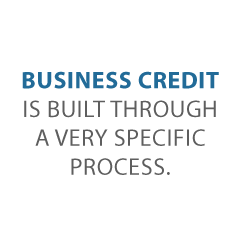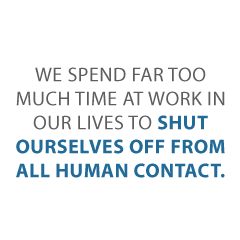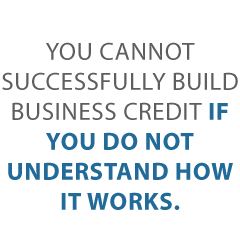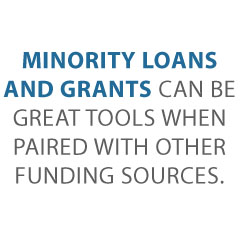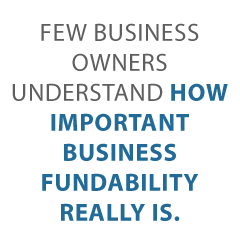
Beating Imposter Syndrome and More –10 Brilliant Business Tips of the Week
Have you ever struggled with not thinking you or your business was good enough? Then you’ll want to read on and scoop up our tips for beating imposter syndrome.
The Hottest and Most Brilliant Business Tips for YOU – You Could Be Beating Imposter Syndrome and More
Our research ninjas at Credit Suite smuggled out ten amazing business tips for you! Be fierce and score in business with the best tips around the web. You can use them today and see fast results. You can take that to the bank – these are foolproof! Beating imposter syndrome is in your future.
Stop making stupid decisions and start powering up your business. Demolish your business nightmares and start celebrating as your business fulfills its promise.
And these brilliant business tips are all here for free! So, settle in and scoop up these tantalizing goodies before your competition does!
#10. Please Don’t Hurt Me, Customer!
Our first jaw-dropping tip is all about the bane of ever businessperson’s existence – handling angry customers. Last week, we looked at turning complainers into promoters. Here’s more on that topic.
The Self Employed says for every brand promoter, you’ll have some 26 brand detractors. Ouch.
As you would probably expect, there’s a lot of harm which detractors can do. And it can be tough to get over that.
One idea is to continue to build as many positive experiences as possible. While you’re not going to be able to please everyone all the time, you can please more people than not. Well done, you could drown out some of the negatives.
But that doesn’t solve them. So, here are some tips for getting to the heart of the matter.
Find Your Complainers and Address Them
What happens when your brand isn’t tagged by the complainer? What if they get really coy, and refer to your business as ‘the company that shall not be named’? Is all lost, in terms of trying to find the complaints and properly handle them?
One idea is to use software such as Daylite, or some other CRM software. The idea is to locate any mentioning of your brand online, and sometimes those aren’t perfect.
Listen to the Complainers
Now, if you’ve been on the internet for more than five minutes, you’re well aware that there are plenty of people who troll. And there are a ton of folks who just complain for the sake of complaining.
But what about the legit complainers? In such instances, your task is to acknowledge that hey, they’re right. And then tell them what you’re going to do about it. It doesn’t have to be anything detailed. Rather, you can say you’re going to review the matter. That’s good enough. But don’t forget to follow up and do just that.
#9. Run the Customer Journey Smoothly
The next awesome tip is about avoiding problems in your customer relations. Main Street ROI notes there are several ways to, well, mess things up.
We’ve covered a lot of similar territory before, so we won’t repeat ourselves. Rather, we’ll concentrate on what we think is the biggest issue.
Don’t Let Leads Slip Through Your Fingers
Have you ever been to a website which you wanted to be at, but somehow you lost the connection? Maybe you got a phone call and clicked away. Or you restarted. Another possibility is you were there for a while and meant to save the information, but something distracted you. And then, oops, it’s gone.
Imagine being on the other side of this. Heck, you probably don’t have to imagine. You’re probably living it. And you may not even know you are.
The Big Net
Those lost prospects are a bit like fish falling through a bigger than normal hole in a fisherman’s net when he’s failed to repair a tear. That fisherman needs a second net. And so, do you.
But how?
Consider adding a lead capture form to your website. You want contact information. So, in return, provide something for free. In exchange for a name and an email address, try providing a white paper to download. Or maybe access to a webinar not found anywhere else.
Not every lost prospect will fall into your secondary net. But it’s senseless to not put out that net and at least try to catch a few of them.
If you are as passionate about succeeding in business as we are, please help us spread the word about how to take the plunge and save time and money – and your sanity! Start beating imposter syndrome today.
#8. Get a Marketing Network Going
Our following life-changing tip concerns networking for marketers. Wordstream lays it all out for us. Connecting to similar businesspeople doesn’t have to mean just going to a networking event and collecting a bunch of business cards. And then promptly tossing those cards into a drawer and not finding them for a year.
We felt the article had good ideas and recommend checking it out in its entirety. So, we’ll showcase just one of their tips.
Be Our Guest
Contact people and ask them to be your guest bloggers! And do the opposite – ask if you can write a guest post for them.
The best part of this tip was to do the legwork in advance, including crafting good headlines. Make it painfully easy for the host to say yes.
A Few Extra Words on Blog Guest Posting, From Us
We’ve taken a few guest posts over the years, and here are a few things we’ve learned.
First, craft guest posting guidelines and refer people to them. Second, craft standard responses to people who suggest guest posts. These should cover instances like an acceptance, an acceptance with reservations, a denial with a chance to resubmit, and a flat-out denial.
Ask for a relevant sample. So, here at Credit Suite, it would be a blog post or article about business funding, business credit, or maybe banking. We’ve accepted some posts about related topics, like business insurance. But the idea is to match our theme as closely as possible.
And determine what your standards are going to be. One thing I have found is that, if the pitch letter has grammatical and spelling errors in it, then the pitch sample probably will as well.
Make your life easier and have the guest poster write up a short bio. And give them a chance to give input on topic, title, etc.
Most importantly, don’t ever be afraid to say no. We’ve only accepted about 5% (if that) of all of the pitches we’ve ever received.
#7. Social Media + Sales = Results
So, for our next sensational tip, we looked at integrating social media with sales. HubSpot says that you can use social media to, for example, prospect for customers. How? Check places like LinkedIn, and find out their location, work history, and any mutual connections you may have.
Plus, people put all sorts of stuff into their LinkedIn profiles. They might be the member of a surfing club. Or maybe they identify themselves as a graduate of Quinnipiac University. Getting talking points and ways to relate to your prospects can only help you.
Here’s our fave tip of them all.
Social Proof on Social Media
What’s social proof? It’s reviews, mainly. What do other people say about your product or service – or your company? Why not share that with sales. Most people love social proof, as it can often feel more authentic than what a pitchman would say.
Consider Amazon. If there are any reviews for a product at all, people read them. And sometimes those reviews make the difference between a sale… and no sale.
‘The sleeves are too short.’ ‘It didn’t fit my window but the company could not have been nicer. They quickly replaced my purchase with the right size and didn’t charge me for shipping.’ ‘It says it’s chew-proof, but my dog took it apart in less than half an hour.’ ‘The coffee comes with a neat little surprise – a small bracelet with stone beads! I’ll give it to my daughter. What a fun little extra!’
For the positive reviews, give them to sales to make the most of them. And as for the negative reviews, see tip #10 – and address them!
#6. Cold Emails, Hot Leads
This tip is so cool, and it works! Mail Shake tells us all about how to best cold email prospects.
We recommend checking out the entire article so instead we’re going to concentrate on one thing.
It’s Not All About You
‘I am writing because …’ ‘You’re on my contact list because I …’ ‘I wanted to tell you…’ ‘Please help me…’
Are you guilty of any of these?
<Raises hand.>
Why should your prospect buy from you when all you can talk about is yourself? Start with them. ‘First off, thank you for …’ ‘You’ve got a great… and I was hoping to…’ See what I mean?
Now, if you could please, go back and reread the first sentence in this article.
Yeah. That’s why it looks the way it does.
Oh and by the way, better cold emailing might just give you the confidence to start beating imposter syndrome – see tip #5.
#5. Start Beating Imposter Syndrome Today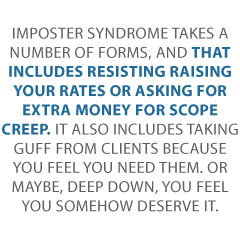
Grab this mind-blowing tip while it’s hot!
It’s all about beating imposter syndrome.
Freelancers Union says imposter is all too common in the world. And we would venture to say that it’s likely to be more common for new business owners. It’s easy to feel you’re not good enough.
Imposter syndrome takes a number of forms, and that includes resisting raising your rates or asking for extra money for scope creep. It also includes taking guff from clients because you feel you need them. Or maybe, deep down, you feel you somehow deserve it.
I know it all too well. Let me tell you my story.
The Storyteller’s Story
I’ve mentioned this before, that I’m a fiction author. And this came from a number of choices I made and actions I took. Of course.
But it wasn’t overnight. It happened after a number of years of writing. This meant putting thoughts on paper and then, later, realizing how cliché or tired they were. It meant throwing prose against a wall, seeing if it would stick.
I belong to a ton of writing groups, particularly on Facebook and Twitter. These groups are filled with folks who lie about how much money they are making. Some are, yes, telling the truth. But a bunch aren’t. They’re also filled with people who claim you can’t use the term ‘author’ unless you’ve been published. That instead, you must say ‘writer’, as if it were a lesser title.
That’s a load of malarkey.
Beating Imposter Syndrome in the Book
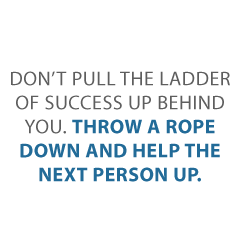 So, how did I first get published? I actually won a contest. Normally, I would have been terrified of entering one. Yep, I would have felt I wasn’t good enough. How could I possibly be good enough, with so many awesome authors out there? I had no experience and no portfolio. There was nothing I could point to and say, ‘I’ve been published at ___’.
So, how did I first get published? I actually won a contest. Normally, I would have been terrified of entering one. Yep, I would have felt I wasn’t good enough. How could I possibly be good enough, with so many awesome authors out there? I had no experience and no portfolio. There was nothing I could point to and say, ‘I’ve been published at ___’.
Nothing. Nada. Zip.
So, for me, beating imposter syndrome meant putting myself out there and saying ‘oh, to hell with it! Let’s see what happens.’ I hesitated before I sent the email. How could I possibly measure up? I didn’t deserve that sort of success. But I sent the email anyway.
And, once I sent it, I second-guessed myself for a few months.
Some Solutions for Beating Imposter Syndrome
Our favorite tip was to surround yourself with people who are further along than you are. This is for the purpose of mentoring, yes. But I like to think it’s also for the purpose of seeing that it’s possible. Know that person was once in your position. And they made it – or at least they’ve made it further than you have.
It’s very encouraging.
And, I might add, ignore the folks who claim you need to satisfy some nebulous, weird ideal which, bottom line, means nothing for your success or your career or industry. Of course, CPAs have to pass exams, and a long haul trucker must have the proper driver’s license. But if someone tells you the equivalent of you can’t be a real ___ without a totally unnecessary ___, then smile sweetly. And ignore them.
They’re only projecting their own insecurities on you.
And, here’s one more thing. When you’ve made it, or at least made it further – do the same for those not so far along as you. Don’t pull the ladder of success up behind you. Throw a rope down and help the next person up.
If you are as passionate about succeeding in business as we are, please help us spread the word about how to take the plunge and save time and money – and your sanity! Start beating imposter syndrome today.
#4. Businessperson, Motivate Thyself!
So, check out this spectacular tip, all about motivating yourself. Addicted 2 Success notes that daily motivation starts the night before. And we could not agree more!
So, here are a few tips, together.
The Night Before
Get to bed early. Yeah, really. That means, binge watch Netflix some other time. We would also add that sleep deficits can be downright dangerous. Try to get more sleep and try to get it early.
But before you turn out the light, plan the following day the night before. This means making a list, and it also means visualizing how to get each task accomplished.
By the way, this should help with insomnia. After all, if your tasks are already written down, and you’ve already considered how to get them accomplished, you might spend less time in bed, worrying.
Here’s one tip, just from us.
Batch What You Can
What the heck does that mean? It means getting your lunches together on Sunday, rather than every morning. It means choosing your clothes for the week, or at least the night before. It may also mean cooking something which will work for you for much of the week, like plain drumsticks, which can be served with mashed potatoes and gravy one night, and with buffalo sauce on another night.
You’re going to need to get dressed on Thursday and make dinner on Wednesday. You’ll have to carry your lunch (or at least snacks) on Friday. And you’ll need to, say, pay for coffee with exactish change on Monday.
Since you already know this stuff is happening in advance, stop behaving as if it’s blindsiding you! It isn’t. So, be prepared, and you’ll be a far happier person. And that will translate into improved motivation.
#3. You Don’t Have a Big Budget; But You Can Still Have Big Motivation in Your Business
So, it’s not your imagination: this winning tip can help you motivate your employees – even when the Benjamins just aren’t there. Effortless HR tells us flexibility can be an excellent motivator for people. In fact, parents tend to value it more than a higher salary! So, if you can allow an employee to work from home or later or earlier in the day, do it.
Here’s our fave tip from the pack.
Tradition!
So, this is a neat idea, and it doesn’t have to cost a lot. What can your business do together which won’t break the bank? I once worked for a company which did a potluck lunch once per quarter. People either made something or brought paper plates or soda or the other trappings. Or they contributed a little cash.
Sitting down together was fun and relaxing. It took us all out of our everyday lives for a few hours, every three months. It’s easy to do something like this. And – bonus – how about asking your employees what they want to do?
#2. What’s in a Business Name?
Our second to last unbeatable tip can give you a new perspective on naming your business. Crowd Spring reveals all about naming your business properly. We’ve covered similar ground on our blog. There are ways to name your business which can lock you out of financing.
Don’t do that.
This article provides a few other reasons why one name or another could be a pitfall for your business. We suggest you check out the article in its entirety for examples and advice on how to avoid issues.
So, here’s one issue they outlined.
Guilt by Association
Disney recently bought 20th Century Fox and Fox Searchlight Pictures. And they promptly dropped the ‘Fox’ from both acquisitions.
Never mind that these properties aren’t owned by Murdoch (the folks who own Fox News). Disney didn’t want to alienate any potential customers. By dropping the term, they neatly sidestepped that.
For Disney, it was also convenient, as they would have likely been renaming those properties anyway. So, they changed the names to better associate them with the Disney brand. At the same time, they dropped a term which could have turned off some customers.
Smart folks, those Disney people.
#1. Clean Office, Organized Mind
We saved the best for last. For our favorite remarkable tip, we focused on neatening up your office. Noobpreneur says too much clutter can make your job harder. After all, what was the last time you just knew you had a piece of paper on your desk, but now you’ll be damned if you can find it?
This is not good, and you know it! So, getting organized makes sense not just to keep your work area germ-free (ish – we all know there are going to be germs) – it can potentially help you keep clients.
Here’s the best tip, we felt.
Paper 1, 2, 3
Your paper should have three potential homes. This can, by the way, work for virtual documents as well.
- You haven’t gotten to it yet.
- It’s a work in progress.
- You’re done – so you file the paper. Or you toss it, if appropriate.
We would argue that you may need to make #2 a little more granular. One idea could be a separate folder or the like for a work in progress where you’re waiting for something from someone else. Or you might want to separate time-sensitive items in pile #1.
You do you. But please, get organized!
So, which one of our brilliant business tips was your favorite? And which one will you be implementing now?
If you are as passionate about succeeding in business as we are, please help us spread the word about how to take the plunge and save time and money – and your sanity! Start beating imposter syndrome today.
The post Beating Imposter Syndrome and More –10 Brilliant Business Tips of the Week appeared first on Credit Suite.


